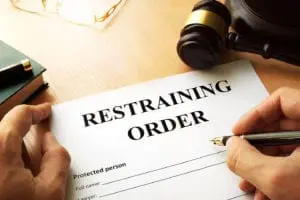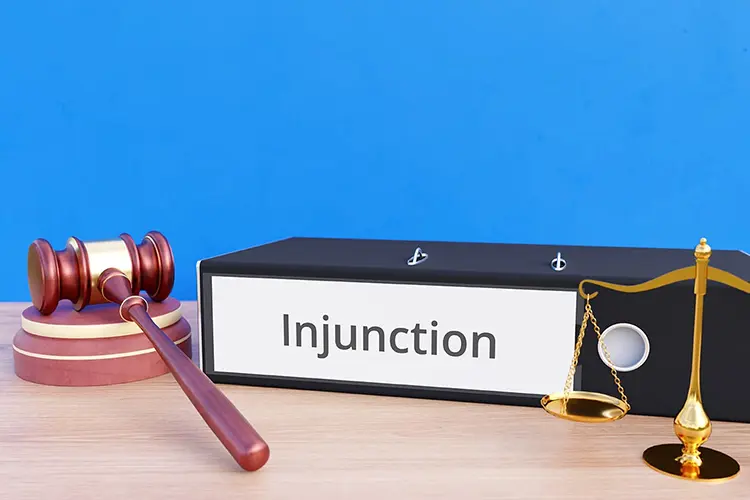Divorce is never easy, even when the process goes smoothly. When the parties are disputing multiple issues, or when domestic abuse is an issue in the divorce, it is common for the court to issue injunctions. Injunctions are orders, binding in law, that force a person with a case before the court to either do something or not do something, as ordered by the court. If you have a case in divorce court, or if you expect to have one soon, requesting an injunction from the court can be a powerful tool to keep you, your children, and marital property safe. As always with legal issues, it is best to consult with a qualified attorney to answer specific questions about your case.

What is an Injunction?
An injunction is an order from the court that has the force of law on one or more people involved in a case. Judges issue injunctions for several reasons, but the most common reason for this type of order is to prevent a party from doing something the other party wants to prevent. A court may also grant an injunction to stop something irreversible from happening, such as the sale of the shared property until the parties can reach some kind of settlement. Injunctions have significant power, and violations of them by parties can be punished by a contempt of court finding, which might even result in jail time.
Types of Injunctions
Courts issue three basic types of injunctions. These are restraining orders, preliminary injunctions, and permanent injunctions. Restraining orders are often passed on an emergency basis to prevent someone taking an action that has to be prevented, such as withdrawing money from a shared account or traveling to places where the other party lives or works. Preliminary injunctions are temporary orders that seek to prevent harm that is not immediate, such as stopping the sale of a house until final disposition. Permanent injunctions are often part of a final order, and they have effect going forward, or until the court rescinds them.
Common Injunctions in Divorce Court
All three types of injunctions are part of a divorce case, and they can help keep you safe in various ways. Knowing which type is appropriate for your situation can prevent all kinds of harm and help you get a fair settlement at the end of the process.

Restraining Orders
Most people have heard of restraining orders. When domestic abuse, of a spouse or the children, is an issue in the case, courts routinely issue restraining orders to protect the petitioner. A typical restraining order prevents one of the parties from going within a given distance of the other person. It might also order that the affected party not call, text, or otherwise contact the petitioner.
Because of the immediate threat of violence, restraining orders can usually get passed very quickly and with a minimum of process in the way. In an ex-parte process, the party being restrained doesn’t even have to be present, and an order can be issued on the testimony of one party alone.
Because the process skips a lot of due processes, restraining orders operate on a very short timescale, usually just a few days or weeks. Before the end of this period, the court typically schedules a hearing where the person named in the order can present their side of the issue and request the order be lifted. If the court agrees, or if no hearing is held, the restraining order typically expires.
Temporary Injunctions
If the court holds a hearing and decides the restraining order is needed, it can turn the order into a temporary injunction that lasts the length of the court case. Temporary injunctions can also be used to protect property and personal matters while the court sorts out the final terms of the divorce.
One example of a temporary injunction is a ban on traveling out of state with children. This order can be issued when the court feels there is a risk of flight or of other harm to the children. It is often issued to temporarily prevent a parent leaving the court’s jurisdiction, but it can be lifted after a custody and visitation agreement is reached.
Permanent Injunctions
Permanent injunctions apply to all the parties for life, or until the court revisits them at the request of one of the parties. A permanent injunction may be a final version of a restraining order, if the court finds the threat of domestic violence is still present. The injunction could also be a new order that’s included as part of the final divorce decree, such as an order to the parents to refrain from making disparaging comments about each other in front of the children.
Finding a Divorce Attorney in Edwardsville, IL
If you are going through a divorce, the plethora of orders and injunctions can seem daunting. You could also use help navigating the system to get a restraining order that helps keep you and your children safe. The Law Office of Robert Elovitz has experience with all kinds of injunctions used in divorce proceedings. Call us today at (618) 692-4800 for advice and to schedule a consultation.



